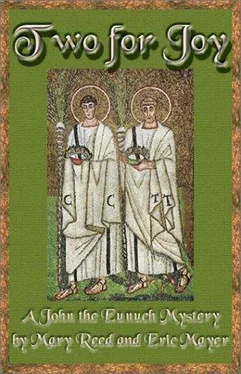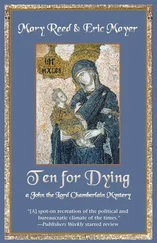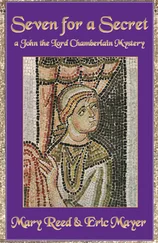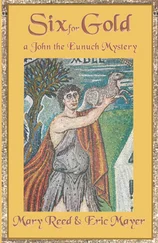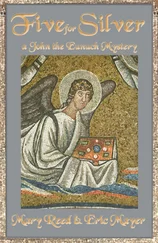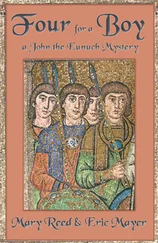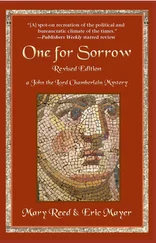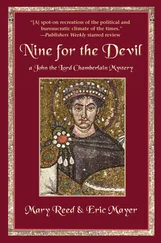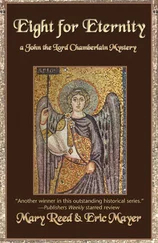Mary Reed - Two for Joy
Здесь есть возможность читать онлайн «Mary Reed - Two for Joy» весь текст электронной книги совершенно бесплатно (целиком полную версию без сокращений). В некоторых случаях можно слушать аудио, скачать через торрент в формате fb2 и присутствует краткое содержание. Жанр: Исторический детектив, на английском языке. Описание произведения, (предисловие) а так же отзывы посетителей доступны на портале библиотеки ЛибКат.
- Название:Two for Joy
- Автор:
- Жанр:
- Год:неизвестен
- ISBN:нет данных
- Рейтинг книги:5 / 5. Голосов: 1
-
Избранное:Добавить в избранное
- Отзывы:
-
Ваша оценка:
- 100
- 1
- 2
- 3
- 4
- 5
Two for Joy: краткое содержание, описание и аннотация
Предлагаем к чтению аннотацию, описание, краткое содержание или предисловие (зависит от того, что написал сам автор книги «Two for Joy»). Если вы не нашли необходимую информацию о книге — напишите в комментариях, мы постараемся отыскать её.
Two for Joy — читать онлайн бесплатно полную книгу (весь текст) целиком
Ниже представлен текст книги, разбитый по страницам. Система сохранения места последней прочитанной страницы, позволяет с удобством читать онлайн бесплатно книгу «Two for Joy», без необходимости каждый раз заново искать на чём Вы остановились. Поставьте закладку, и сможете в любой момент перейти на страницу, на которой закончили чтение.
Интервал:
Закладка:
“I would certainly agree, Gaius,” John replied, “but for three stylites to be struck by lightning, at almost the same instant…”
“The storm was severe. The world can be a strange place. It is as simple as that,” Gaius grunted as he struggled upright. “Steady the ladder, Felix!” he called down to the man below.
Pausing as he swung his foot out to the top rung, he grinned cheerily across at John. “We’re done with Matthew now. Only two more to go.”
Chapter Three
When John got home after a day spent examining the unpleasant habitations of the three burning victims he found Philo ensconced in his study. The philosopher had taken to that formerly private room like a stylite to a pillar, as Anatolius had remarked not long after Philo’s arrival.
“You’re late for your meal,” announced the philosopher. He was studying the odd board game- shatranj, he called it-that he had brought back from his travels and which John, unthinkingly, had allowed to be placed on a table in the study.
“I cannot claim much of an appetite after the sights I’ve seen today,” John replied softly. “I’d have arrived back earlier but I stayed somewhat longer than usual at the baths.” He did not add that his long immersion in its tepid pool had not succeeded in making him feel any less soiled.
The chair usually set behind his desk had been pulled over to Philo’s table. Suppressing a sigh, John sat down and regarded the game board. It looked to his eye much like a latrunculi board, but the heavy, carved jade pieces ranged stolidly upon its squares were unfamiliar. Alas, his mind had been occupied with other matters when Peter had brought up the question of the table Philo had requested. What had John told him? “Oh, put it anywhere.”
Now John regretted his inattention, for the study was his sanctuary. He liked to sit there in the evenings when the sun’s dying light, streaming in through its large window, lent a rusty hue to the bright tesserae of the mosaic that transformed the width of one wall into a bucolic scene. John had developed a special fondness for one of its figures, a girl with almond-shaped eyes. He had named her Zoe and had been known to have a word with her from time to time, much to Peter’s distress.
Perhaps, John thought wryly, Peter had placed the table in the study to stop him from sitting in there talking to himself.
He realized he should ask Philo to move to some other room to contemplate the game. But the last time he had seen him, John had been a student, not his equal. Even though that had been a lifetime ago, the two weeks that had elapsed since Philo had accepted his hospitality had not been sufficient for John to overcome the long shadow of that accustomed relationship.
“How has Peter been today? Does he seem recovered?” he asked his guest.
“He’s been going about his duties,” Philo replied.
“And your day went well?”
Philo looked up. The expression of childish curiosity his face had displayed during their previous day’s exploration of Constantinople had been replaced by the exhausted, hunted look increasingly familiar to John since his former mentor’s unannounced arrival at his door.
“I spoke with Senator Aurelius as you advised me, John,” the other said heavily. “He taught at the Academy himself and yet still he refuses to offer me assistance.”
John expressed his surprise.
“He treated me so curtly,” Philo continued, moving pieces idly around the board, “that I thought my mere presence in his study was causing him pain.” A frown nagged his bushy eyebrows.
“This is a wealthy city,” he went on resentfully. “Its beggars don’t ask for less than a follis. Every baker and mason and common laborer has the dignity of work. There are scribes laboring at the palace without knowing a word of Latin, or so I hear. And yet I am to believe there is no employment anywhere in the city or at Justinian’s court for a philosopher, a man of learning such as myself.”
John detected a bitterness in Philo’s tone he had not heard before. But in the old days, this scholar, this man who had taught him to read and write and who, during John’s own brief stay at the Academy, had imbued him with the taste for knowledge, had been little touched by the dark cares of the world. The man who had so recently arrived at John’s door was almost a stranger. The carefully clipped beard and longish hair, now thinner and receding from the forehead, had turned white, the eyebrows were thicker, the eyes sunken, and the hawk-like nose more prominent. Philo had become the perfect physical embodiment of the ideal philosopher. Except for the gnawing bitterness.
“I would say, Philo,” John replied, choosing his words with care, “that a philosopher such as yourself, a follower of Plato, should not perhaps be too shocked to find a less than warm reception at a Christian court in a Christian city.”
Philo’s lips tightened. “I recall quite well that Justinian ordered the Academy closed because of its alleged pagan teachings,” he snapped. “Why do you suppose that Diomedes and I and the others who taught there spent this past seven or eight years in exile? King Khosrow at least is an open-minded patron of the arts and learning without, if I dare say so, our own emperor’s religious agenda.”
John thought it appropriate and necessary to warn Philo against voicing such sentiments in public and as he did so, he looked up into the calm, glassy eyes of the mosaic girl Zoe. He did not, however, voice his thoughts about that other Persian royal patron of the arts whose subjects had captured a young adventurer straying over the border years before and changed his fate forever. If not for them, he thought, he might have been simply John, a small landholder married to his Cornelia, raising a family in comfortable obscurity in some corner of the fertile Greek countryside.
“You must have realized that this lack of opportunity was possible when you chose to come back, Philo,” he pointed out at the end of his cautionary comments.
“It didn’t even occur to me! It’s been five years since Justinian signed the Eternal Peace, the treaty giving us the right to come back. Some of my colleagues did so at once, of course. A few are still in the east and to tell the truth I thought about staying too, but I suppose I was homesick. That’s why I returned. I’d forgotten that my only true home was the Academy.”
“No matter the unfairness of Justinian’s closing it, that’s all in the past, Philo. Nothing can be done to change it. But at least you’re no longer in exile. Perhaps that’s all the justice you’ll ever find. However little it is, it’s more than many enjoy.”
The other shook his head. “No, John, I cannot accept that. We’ve been allowed to come home and even given the right to practice our own religion, that’s true. How often that’s been pointed at as a demonstration of the emperor’s boundless mercy. Merciful indeed, allowing some harmless old scholars to come creeping back to their homes!”
“But,” John replied, “of such pagans as remain in the empire, you’re the only ones having the emperor’s official sanction, Philo. Consider, here I am, Justinian’s Lord Chamberlain, sharing my house with a Christian servant and a licensed pagan, as it were, yet I’m the only one unable to legally profess my faith!”
Philo just shook his head more vehemently. “Don’t make light of my sorry situation, John. Has the emperor returned to us the land or the assets he confiscated? Has he offered us compensation for all we lost? Of course not. Nor are we permitted to teach. What then is the point of allowing a man to live yet allowing him no way earn his living? It’s my opinion that Justinian’s mercy is nothing more than calculated cruelty. He seeks to increase our suffering by forcing us to wander like wraiths through a world in which we no longer have a place. He wants to see us in rags, begging in the streets. What pleasure that would give him!”
Читать дальшеИнтервал:
Закладка:
Похожие книги на «Two for Joy»
Представляем Вашему вниманию похожие книги на «Two for Joy» списком для выбора. Мы отобрали схожую по названию и смыслу литературу в надежде предоставить читателям больше вариантов отыскать новые, интересные, ещё непрочитанные произведения.
Обсуждение, отзывы о книге «Two for Joy» и просто собственные мнения читателей. Оставьте ваши комментарии, напишите, что Вы думаете о произведении, его смысле или главных героях. Укажите что конкретно понравилось, а что нет, и почему Вы так считаете.
